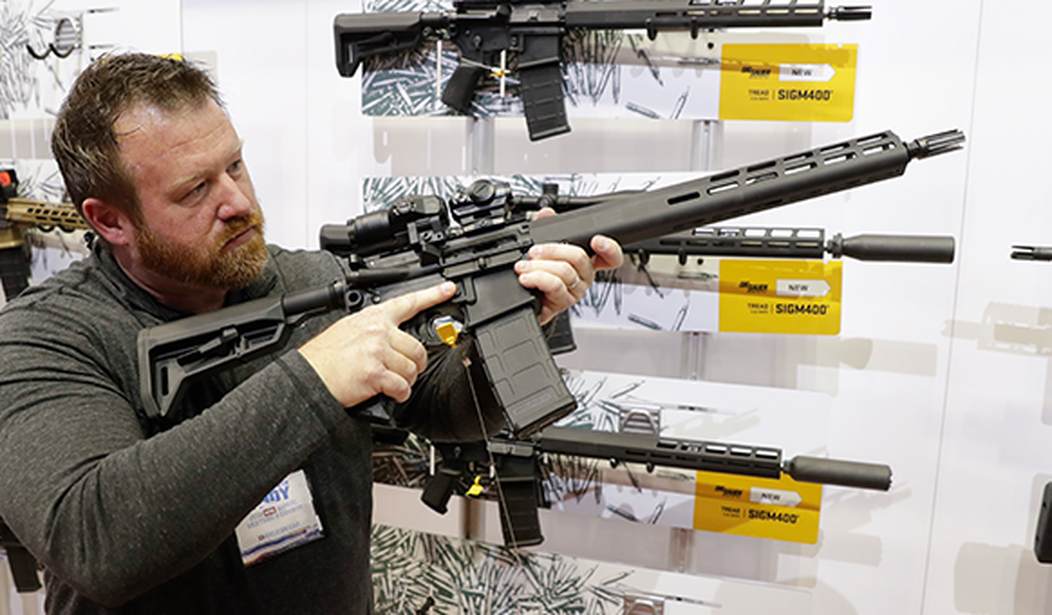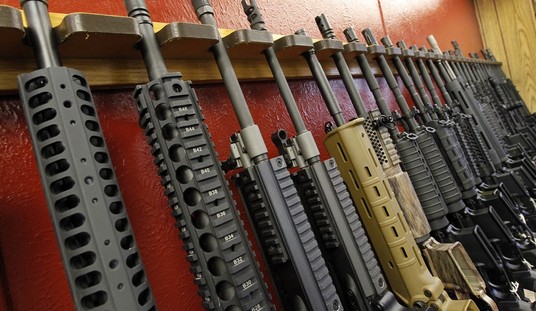The new lawsuit filed by the government of Mexico (with the help of Brady legal counsel Jonathan Lowy) accusing the firearms industry of knowingly causing cartel violence south of the border involves most of the major manufacturers in the U.S., including Glock, Smith & Wesson, Sturm Ruger, and Beretta. One big name in the industry that’s not a part of the new litigation is Sig Sauer, and while we don’t know for sure why the Mexican government didn’t name them as a defendant, it sure looks like the fact that Mexico’s planning on spending millions of dollars on the company’s products has something to do with it.
The small arms maker Sig Sauer Inc has sought U.S. approval to sell millions of dollars’ worth of automatic assault rifles to the armed services of Mexico in a deal that will help to modernize the country’s military, people familiar with the situation said.
The U.S. Congress was notified last week that the Mexican Navy and Naval Infantry are in line to purchase as much as $5.5 million worth of automatic rifles made by Sig Sauer.
The deal could be controversial because in the past weapons sold to Mexican authorities have found their way into the hands of criminals. Mexico’s drug war violence has largely been carried out with weapons from the United States, imported both legally and illegally.
Weapons that contain some parts or intellectual property from the United States fall under U.S. export control rules, requiring approval.
Keep in mind that this Reuters story came across the wire on August 3rd, the day before the news of Mexico’s lawsuit became public, and the news agency isn’t the only to note that the drug cartels have been able to get their hands on guns that were legally sold to the Mexican military or law enforcement. Larry Keane, senior vice president and general counsel of the National Shooting Sports Foundation, also pointed out that inconvenient truth (at least as far as Mexico is concerned) in his response to the litigation.
The U.S. government also sells firearms directly to the Mexican government. Mexican soldiers continue to defect to work for the drug cartels, taking their American-made service rifles with them. In recent years the number of defections has soared to more than 150,000. According to U.S. State Department cables, the most lethal weapons used by Mexican cartels come from Central American arsenals. Additionally, according to a 2006 report by Amnesty International, China was actively supplying arms to Latin American countries, which have subsequently been seized in Mexico.
I’m of the opinion that if Mexico wants to sue the firearms industry in the United States for causing cartel violence in Mexico, then the firearms industry should tell the López Obrador administration to go pound sand and refuse to do any business with the country’s military forces or law enforcement agencies.
I don’t believe that Sig Sauer was aware of the Mexican government’s plans to sue their fellow gun makers before it happened, but now that the lawsuit is a matter of public record, I’m curious to see if the company will revisit their plan to provide millions of dollars worth of rifles to the Mexican Navy or if it will continue to seek Congressional approval for the sale; even as its potential customer sues competitors and seeks billions of dollars in damages. Five million bucks is a lot to leave on the table, but I’d argue that Sig Sauer risks a consumer backlash that could cost them far more if it proceeds with the sale while the lawsuit is still an active threat to the industry (and ultimately, our Second Amendment rights).









Join the conversation as a VIP Member